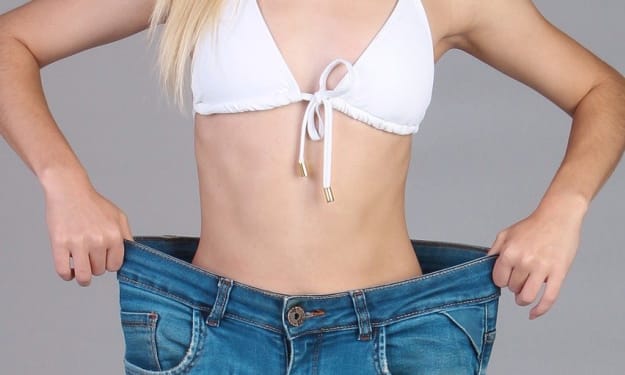
Drinking lots of water is the one "holy grail" key to keeping your body healthy. Water makes up as much as 60% of our bodies, according to the US Geological Survey, and it's responsible for everything from cleaning away waste to controlling body temperature.
"Water is very important to our bodies because all cells, body compartments, and bodily fluids (such as blood) within the human body contain water to some degree," says Albert Do, MD, MPH, a gastroenterologist and the clinical director of Yale Medicine's fatty liver program in New Haven, Connecticut. He goes on to say that our kidneys are adept at controlling the quantity of water in our bodies; they produce more urine when we drink too much water, and they produce less pee when we drink too little. The body, on the other hand, is more susceptible to water shortage and can seldom last more than a week without it.
Water may help you maintain a healthy weight in addition to keeping you alive by assisting your physiological systems in functioning (which is clearly the most important benefit of staying hydrated!). But it's not as easy as drinking water and losing weight. Here's all you need to know about how water may help you lose weight or keep it off.
What Does Science Say About Weight Loss and Hydration?
Water has some scientific support as a strategy for weight loss through a variety of ways. Dr. Do adds that it is "not apparent" if drinking water causes weight reduction directly, but that the two may be linked indirectly.
Water is just one element of the weight reduction equation, says Cynthia Sass, MPH, RDN, a board-certified expert in sports dietetics in Los Angeles, and she doesn't encourage relying on it as a solo weight loss answer. "However, because water is required for every bodily activity, including proper circulation, digestion, and waste removal," she continues, "drinking adequate water promotes health in numerous ways."
Water consumption may lead to a reduction in food consumption.
Drinking water before meals helped naturally lower calorie consumption, according to a small research published in Clinical Nutrition Research in October 2018, which may assist healthy weight control. Subjects who drank one and a quarter cups of water before a meal ate less than those who drank the same amount after a meal or drank no water at all. Because this study only included 15 people, all of whom were between the ages of 20 and 30, bigger, more varied investigations are needed.
"To put it another way, drinking water before or with food may lead to a reduction in the amount of food taken, resulting in weight loss," Do adds. "Drinking water an hour before eating a meal may give hormonal satiety signals time to take effect, resulting in decreased appetite at mealtime." Increased fiber consumption before meals, as well as choosing for many, smaller snacks throughout the day (rather than three bigger meals), may have a comparable impact, according to him.
Increasing your water intake might help you burn fat faster.
Increased water consumption not only encouraged weight reduction via "decreased eating," but also aided metabolism by enhancing lipolysis, according to a review of research published in Frontiers in Nutrition in June 2016. (the breakdown of fats and other lipids by hydrolysis to release fatty acids).
"Research suggests drinking water may assist boost metabolism, and while the effect may be little at first, it might snowball over time to have a larger influence," Sass says.
To Lose Weight, How Much Water Should You Drink?
Because the link between the two hasn't been scientifically demonstrated, Do says there is no set amount of water that is suggested for weight reduction. However, he recommends following the National Academies of Sciences, Engineering, and Medicine's guidelines to "keep hydration balance": Men should drink 15.5 cups (3.7 liters or 124 ounces) while women should drink 11.5 cups (2.7 liters or 92 ounces). He says this includes water and fluids from meals.
When Is It Appropriate to Drink Water to Lose Weight?
When it comes to maximizing weight reduction, drinking water before meals can help curb your appetite and prevent overeating. Consider drinking some water after a meal since it might aid digestion. Sass, on the other hand, suggests spacing your water consumption throughout the day.
"In addition, certain beverages include substances that promote urine output, such as caffeine," Do adds. To put it another way, they have a dehydrating impact. While switching to decaf isn't required for hydration, he recommends recognizing when increased water consumption is necessary — for example, when you're exposed to hot weather or physical exercise — and making sure to rehydrate accordingly.
How Can You Increase Your Water Consumption?
Incorporating water breaks into your daily routine, like other healthy lifestyle activities, will help you keep to the practice, according to Do. "This might include tying water consumption to current routines (for example, drinking a cup of water after brushing one's teeth in the evening) or putting up reminders."
Another option is to include more water-rich meals in your diet. Many fruits and vegetables have a high water content, according to the Mayo Clinic, with watermelon and spinach being two items that are nearly 100 percent water.
Sass recommends carrying a water bottle and setting reminders on your phone to remind you to drink. You may also use a smart water bottle such as HidrateSpark, which calculates how much water you need to drink and keeps track of your intake
Finally, Sass proposes infusing water with taste to encourage you to drink it. "If you don't like plain water, try adding some healthy ingredients like lemon or lime, fresh mint, sliced cucumber, fresh ginger, or slightly mashed chunks of seasonal fruit," she recommends.
What Is Water Weight and How Do You Get Rid of It?
"The fluid weight your body clings to is called water weight," Sass says. And if you've ever begun a diet and watched your weight decrease fairly immediately, it's most likely due to water weight reduction. "Body weight from water varies from day to day and is dependent on one's present hydration condition, food choices other than water, geographic location, including weather and altitude, and other factors," Do says.
According to Sass, water weight is frequently caused by a higher-than-normal sodium consumption, as excess sodium causes fluid retention. "Hormonal changes can also cause water weight to be maintained," she says. If the extra sodium is causing the water weight, she notes that "the easiest method to reduce it is to drink more water and increase your potassium intake, which prompts the release of excess sodium and fluid." According to the Cleveland Clinic, potassium-rich foods include potatoes and sweet potatoes, bananas, avocados, and leafy greens like spinach.
Water weight is not damaging to one's health; in fact, the body is designed to hold certain water weight. Rather, fatty tissue weightcertain amount of (also known as adipose tissue or fat mass) is harmful to one's health. "Total body weight is used as a replacement for fat mass weight because the latter is harder to measure directly," he adds. "Excess fat mass causes metabolic health problems such high cholesterol, insulin resistance, diabetes, cardiovascular disease, and fatty liver disease."
Can You Lose Weight With Other Dietary Water Sources?
According to Sass, water-rich foods including watermelon, strawberries, cantaloupe, peaches, oranges, cucumber, yogurt, and cottage cheese can offer up to 20% of your overall fluid consumption. However, calculating water consumption from dietary sources might be difficult. "Because water is included in all foods [to varying degrees], it might be difficult to determine how much water one consumes on a daily basis," Do explains.
If you're attempting to lose weight, you should think about the nutritional value of each meal, such as calories, carbohydrates, and protein grams, and how they'll affect your total diet.
Is Water Fasting a Good Way to Lose Weight?
Water fasting is a sort of fasting in which you only drink water. "Especially not on your own, without complete medical supervision," Sass does not recommend the technique. (Your doctor may advise you to fast for a short period of time before a medical procedure, such as a colonoscopy or blood testing.)
Keep in mind that most liquid-based fasts and cleanses, including water fasting, might cause temporary weight loss. However, there is little to no scientific proof that this sort of eating regimen may lead to long-term weight loss. While transient weight reduction may be the only "benefit" of a water fast, the "drawbacks" are numerous. What are some of the possible health consequences? Kidney damage, nutritional inadequacies, fainting, brain fog, exhaustion, and hormone level changes in women, according to Do.
A Final Thought on Hydration and Weight
Water is essential to our entire health; after all, we cannot exist without it. However, while drinking water can help you lose weight by lowering your calorie intake and speeding up your metabolism, you can't just sip your way to a lower number on the scale.
About the Creator
event zee
I`m a Content Creator






Comments
There are no comments for this story
Be the first to respond and start the conversation.